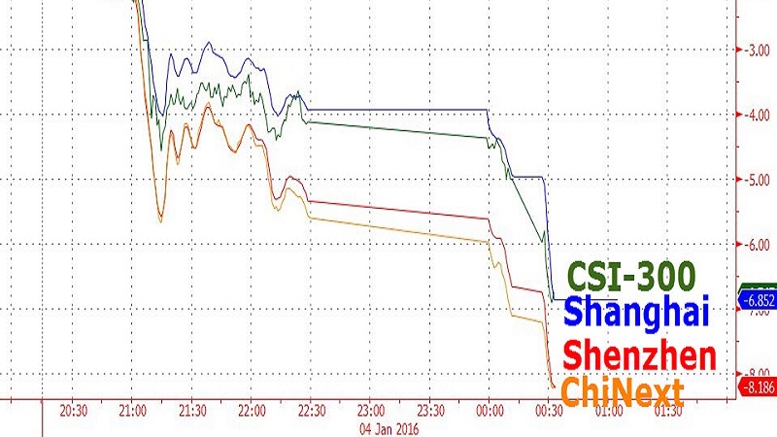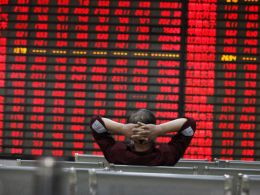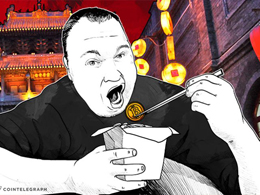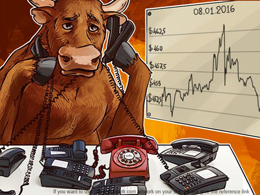
Bitcoin Price Not Affected By Chinese Stock Market Crash
The financial situation in China is anything but stable right now, as the continuing devaluation of the Chinese Yuan is causing a lot of worry and confusion. To make matters even worse, the country’s entire market crashed yesterday, leading to an emergency stop all trading activities. When all was said and done, the stock market lost 7% of their value in less than a day, and more chaos would have ensued if trading hadn’t been halted at that time. Time for plan Bitcoin in China by the look of things.
Related News
On Dec. 15, the Chinese bond futures market suffered a record crash, plunging from 102 to nearly 94. Offshore yuan has also increased significantly after the Fed raised rates, rising from 6.9 to approximately 6.95 overnight. As the Chinese New Year approaches and outflows accelerate, the Chinese yuan will presumably weaken even more in the upcoming months, which will ultimately push the price of Bitcoin further. On Dec. 13, the price of Bitcoin reached a 34-month high, mostly due to the depression and devaluation of the Chinese stock markets and yuan. As weakening of the yuan continued,....
Chinese shares experienced their worst ever start to a year after Chinese stock markets plunged 7% in their opening session of 2016 on Monday. It began with an initial halt of CSI-300 Futures (Chinese Securities Index) for 15-minutes at a 5 percent level, a move that failed to stop the retreat. When the market re-opened following the temporary suspension, shares began extending their losses. As the stock market tumbled to 7%, China’s new “circuit breaker” measures were triggered, a mechanism enforced by the securities regulator to automatically prevent further volatility and losses in the....
2016 began in China with two sequential market crashes that forced the regulators to intervene in the Shanghai and Shenzhen stock exchanges. As they did in response to the stock bubble that burst in 2015, Chinese regulators intervened to organise a centrally planned recovery. Despite a stimulus of US$20bn that the People's Bank of China (PBoC) pumped into the market during the 5th January market crash, the yuan kept weakening. Gold, as the usual commodity of refuge for investors during uncertain times, started to gain momentum. At the same time, the virtual currencies that employ heavy....
Internet industry magnate and financial markets prognosticator Kim DotCom says now is the time to buy bitcoin in light of the Chinese stock market meltdown and a worsening outlook for the global economy as a whole. The Chinese financial markets have had a long, hard summer. Since June 12, domestic market bubbles have burst, forcing massive action to counter it by the People’s Bank of China, which is majority-owned by the Chinese Government. Last month, when the primary Shanghai Index fell over 8%, the People's Bank of China devalued the renminbi by almost 2%. This level of market....
The Bitcoin price has overcome the level of $450 and reached a top of $460 recently. Bitcoin is growing the second day in a row. But what caused this growth? As it began yesterday the indices halted trading on the stock exchanges of Shanghai and Shenzhen. This is not the first time when a sharp decline in the value of shares has stopped trading on the stock markets in China. The reason was a substantial decline in exports, which entails a decrease in the index of Shanghai Composite, which since mid-June 2015 has lost 35%. Despite the measures taken by the Chinese authorities to influence....





